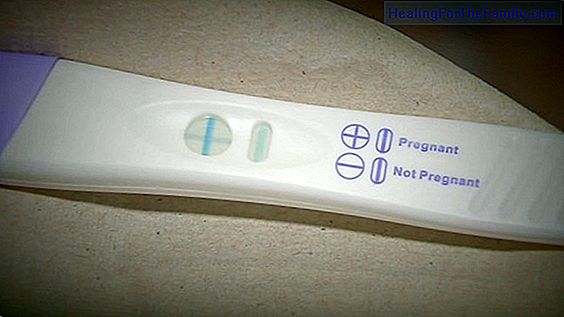Most common mistakes in breastfeeding
There are many doubts that invade mothers when breastfeeding, and urban legends or myths about breastfeeding usually do not help; even the contradictory information that we usually receive during the first postpartum days, since everyone believes or believes in the right to do so. Let's see what are
There are many doubts that invade mothers when breastfeeding, and urban legends or myths about breastfeeding usually do not help; even the contradictory information that we usually receive during the first postpartum days, since everyone believes or believes in the right to do so.
Let's see what are the most common mistakes in breastfeeding, mistakes that we make, either due to ignorance or recommendations; but that can complicate the correct establishment of breastfeeding.
The main mistakes during breastfeeding

- Limit the times of each shot: during the first days, even weeks I would say, we should keep our watch in a drawer. We must eat when we are hungry, drink when we are thirsty, rest when we are tired. It is fundamental to listen to our body. And the same goes for our baby, we must do exactly the same. It may seem chaotic at first, but I assure you that little by little your baby will be regularized; but the shots must be on demand. We must offer the breast every time our baby wants or needs, without limiting the time of the same; since with this we will be able to produce exactly the amount of milk that our [email protected] needs and we will avoid certain annoyances that are usually secondary to strict schedules of the intakes: digestive discomforts, alterations in growth and weight gain, irritability, etc.
- Night separation: there are still hospitals that offer mothers the "nest" service so that the mother rests, in such a way that many hours of separation take place (they even give them bottles of formula or use nipples or pacifiers to reassure them). It is a huge mistake, babies should be with their mothers, because during the night and nightly shots is when higher prolactin is secreted, a hormone necessary for milk production. It is key to preserve the skin with skin at night and offer the breast every time our baby demands it.
- Use of pacifier or bottle: if breastfeeding has not yet been established correctly (which usually takes a few weeks) it is not advisable to introduce any contraption that may interfere with the grip. If you must give supplement choose to do with teaspoon, small glass or syringe.
- Weigh the baby before and after each feeding: this is what we call the "double heavy" and except in exceptional cases, it is discouraged to practice it as a way to control what our baby ingests. Unfortunately it is not possible to know exactly how much milk you drink if you are breastfeeding, but a good way to know that you are well fed is to control the diapers, which are wet at each change; that he cries when he is hungry or something bothers him, that he has moments of sleep and others in which he is awake ...
- Prepare the nipple: has no practical foundation that is made to make the nipple "callus", type brushing the nipples with a toothbrush every day, use alcohol of 90º, try to sterilize it and a long etc. As breastfeeding is established, the grip is correct or possible alterations are corrected we will not have to worry. The only care we should pay to this sensitive area is proper hygiene (with the daily shower is enough, and do not spend with the use of soaps), aerate them as much as possible and little else.
- Do not seek help when complications arise. If the problems that arise with breastfeeding are not solved, doubts are solved, etc. then breastfeeding is very likely to fail. So look for your midwife, or a lactation consultant and let yourself be helped.
- Stress: "Keep calm and give the tit", as stress has been shown to negatively affect milk production. So do not aspire to a perfect lactation, it is not necessary. Accept things as they come, and whenever you need to rest, breathe, enjoy and ask for a lot of help.












